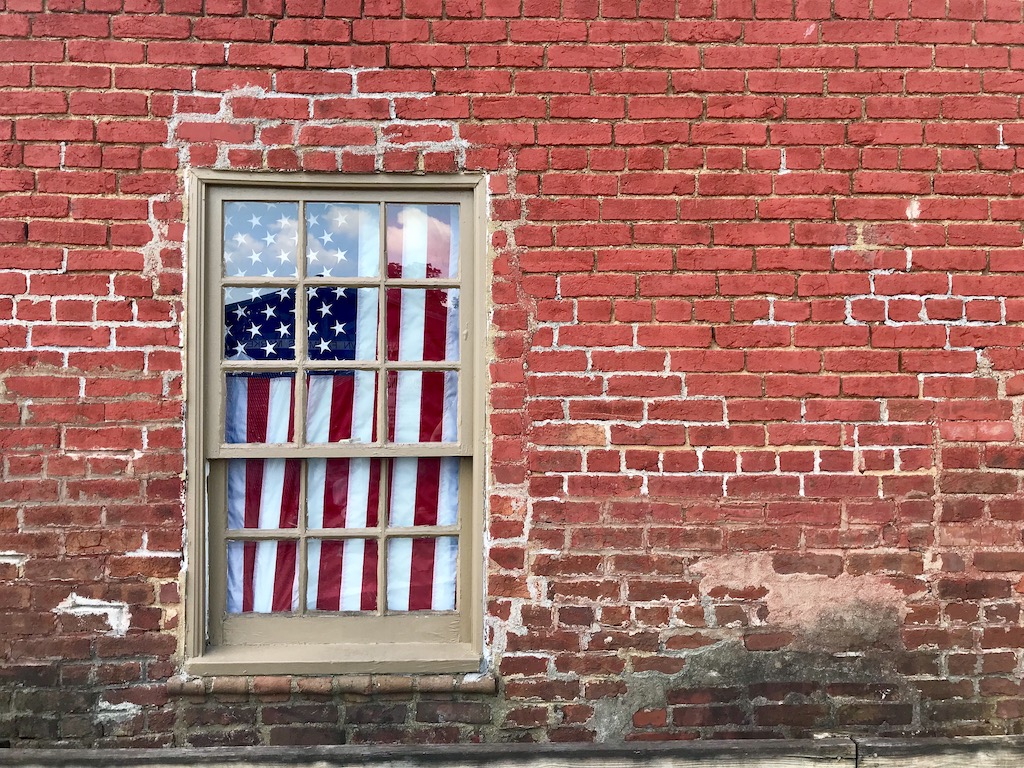On October 6, 2017, Values & Capitalism hosted its fourth annual Fall Summit at AEI’s headquarters in Washington, DC. Each year, this unique gathering brings together leading voices from the Christian community for a one-day series of conversations on faith, public policy, and society. The 2017 Fall Summit included 100 of V&C’s closest student and faculty partners from Christian colleges and universities around the country, in addition to V&C alumni and local leaders from institutions around Washington.
The theme of the event was a Christian understanding of human dignity and its implications for institutions of public policy and civil society. To lay the groundwork for discussions around this topic, theologian and Baylor Professor Junius Johnson provided an in-depth framework of Christian anthropology and “personhood,” describing the origin and nature of human identity. Further unpacking the complexities of Johnson’s remarks, scholar and writer Matthew Lee Anderson engaged Johnson in a conversation challenging some of the common assumptions around “what it means to be human,” and considering how this might inform today’s key questions in the public square.
Building on these principles, and before moving on to talk about policy and government, Jeremy Everett (Texas Hunger Initiative), Anne Snyder (Philanthropy Roundtable), and Tim Carney (AEI) discussed the state of families and communities in America, and how human dignity can be fostered and enhanced in familial, civic, and other social contexts. Carney points to Christ’s greatest commandments of loving God and neighbor as being necessarily intertwined, and described the family and community as “the scaffolding” that allows the individual person to flourish. Later, Snyder pointed out that the weakening of civil society is largely responsible for the lack of agency that many people in America feel that they have today. Carney argued that this phenomenon is largely to blame for recent populist movements and the stratification of American society.
Related to that topic, the conversation then turned to a central component of human dignity: the sanctity of work. AEI scholar Nick Eberstadt, a leading voice on the “dignity deficit” and the lack of meaningful work in America’s working class, shed light on recent data related to the labor crisis in the US. Eberstadt underscored the need for vocational opportunities for America’s most vulnerable, whose personhood and creative potential is often overlooked.
Eberstadt’s observations illustrated a problem that must be met by many creative solutions. In order to take the conversation one step further, attendees dispersed into “breakout sessions” to discuss particular social and public policy initiatives that help individuals realize their full potential. The breakout sessions, led by Andy Smarick (AEI), Heather Rice-Minus (Prison Fellowship Ministries), Aparna Mathur (AEI), and Kevin Brown (Asbury University) examined issues in education and vocational training, employment and labor policy, criminal justice reform, and workforce innovation in an increasingly automated economy.
Next, taking a step back from questions specific to American society and culture, Elyse Bauer Anderson (Congressional-Executive Committee on China) led a conversation with Judge Ken Starr and Tom Farr (Religious Freedom Institute) on human dignity and international religious freedom, examining the vital role religious liberty plays in social, political, and economic stability.
Finally, the summit closed with a conversation with Cherie Harder (The Trinity Forum) on Christian leadership. Tying together many themes from the day, Harder addressed the need for leaders who model dignity, civility, and integrity in both their private and public lives. Furthermore, she described the habits and decisions that help leaders cultivate these virtues. Her guidance represented a counter-cultural approach—and one that is central to the mission of V&C: a call for leaders to thoughtfully and diligently engage with people and ideas that challenge their own beliefs and assumptions about the world.
Following the one-day Fall Summit, student leaders involved in the AEI Executive Council program stayed at AEI’s headquarters for the fifth annual Executive Council Fall Leadership Conference. To read more about this event click here. To read more about AEI’s other opportunities for undergraduates, visit this webpage. A video recording of the first three sessions of the summit is available below:



